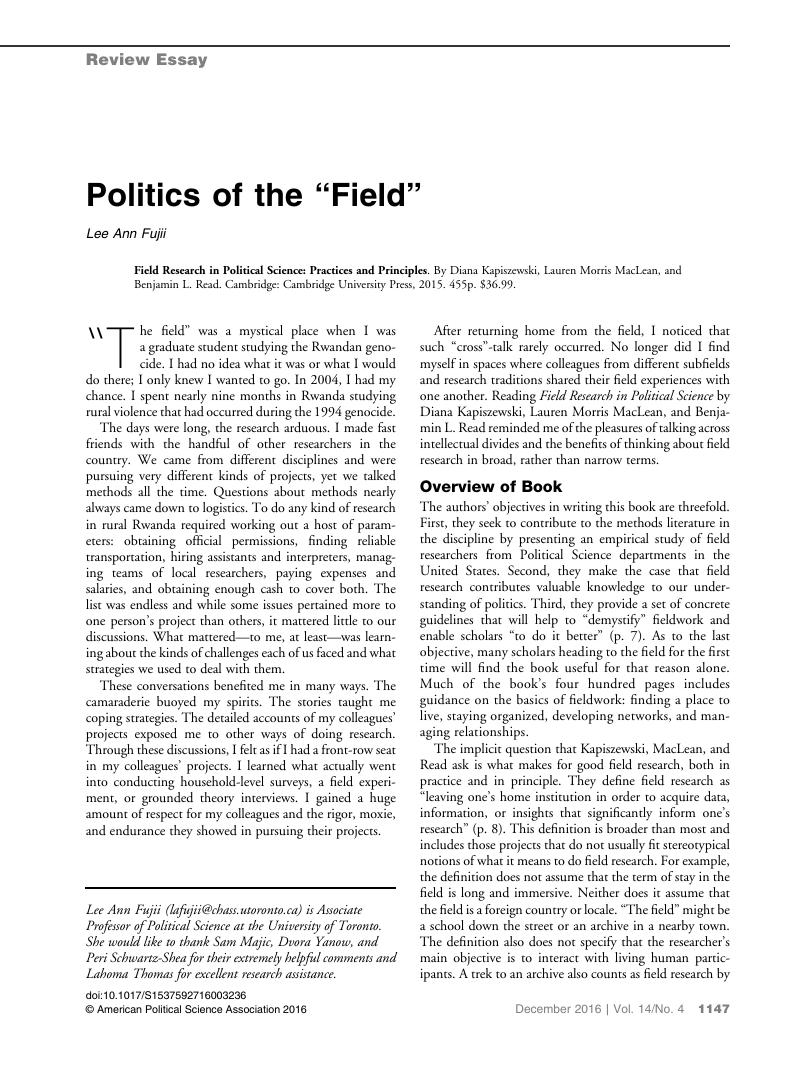Crossref Citations
This article has been cited by the following publications. This list is generated based on data provided by Crossref.
Morgenbesser, Lee
and
Weiss, Meredith L.
2018.
Survive and Thrive: Field Research in Authoritarian Southeast Asia.
Asian Studies Review,
Vol. 42,
Issue. 3,
p.
385.
Poopuu, Birgit
2020.
Dialogical Research Design: Practising Ethical, Useful and Safe(r) Research.
Social Epistemology,
Vol. 34,
Issue. 1,
p.
31.
Thaler, Kai M.
2021.
Reflexivity and Temporality in Researching Violent Settings: Problems with the Replicability and Transparency Regime.
Geopolitics,
Vol. 26,
Issue. 1,
p.
18.
Howlett, Marnie
2022.
Looking at the ‘field’ through a Zoom lens: Methodological reflections on conducting online research during a global pandemic.
Qualitative Research,
Vol. 22,
Issue. 3,
p.
387.
Hunt, Stacey L.
2022.
Sexual Harassment and Assault During Field Research.
PS: Political Science & Politics,
Vol. 55,
Issue. 2,
p.
329.
Thaler, Kai M.
Juelich, Antonia H.
and
Ashley, Sean Paul
2024.
From snapshots to panoramas: navigating power, space, and time in the study of armed groups.
Conflict, Security & Development,
Vol. 24,
Issue. 6,
p.
725.
Hernandez, Carolina Velandia
2024.
Navigating pregnancy and scholarship: Exploring positionality, reflexivity, and intersectionality in research.
Administrative Theory & Praxis,
p.
1.
Stevens, Campbell M.
2024.
Field Closeting: Navigating Fieldwork as a Queer Scholar.
PS: Political Science & Politics,
Vol. 57,
Issue. 2,
p.
302.
Ibrahimi, Niamatullah
and
Malejacq, Romain
2024.
Is it even worth it? The ethics of researching armed groups in ‘the field’.
Conflict, Security & Development,
Vol. 24,
Issue. 6,
p.
525.



